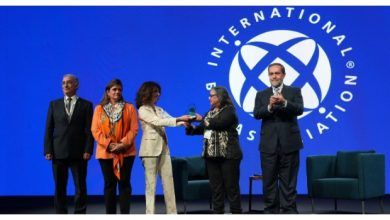
The Federal Government has revealed that plans are well underway to establish Nigeria’s first-ever Renewable Energy University, with the support of international development partners. The proposed institution will also mark the first green university in Africa, symbolizing Nigeria’s commitment to sustainable development and clean energy education.
This was disclosed by the Managing Director and Chief Executive Officer of the Rural Electrification Agency (REA), Abba Aliyu, during a roundtable meeting held yesterday in Victoria Island, Lagos, between the REA and the Lagos State Government.
Aliyu noted that while the university’s location has not yet been finalized, Lagos stands a strong chance of being selected. He hinted that the decision will depend on the level of interest and collaboration shown by the state government.
“We are working with development partners to establish the first Renewable University in Nigeria. It’s going to be the first green university in Africa,” Aliyu stated.
“We have not yet decided on where we are going to site that university. If Lagos works very hard, we may site it in Lagos.”
In addition to the proposed university, the REA chief also announced plans to launch a Renewable Asset Management Company, a national-scale initiative aimed at sustaining the federal government’s renewable energy investments across the country. He said the company, which has already secured ministerial approval, will be capitalized at ₦1 trillion and will act as the custodian of all renewable assets nationwide.
“We have gotten approval through the Honourable Minister of Power for the establishment of the Renewable Asset Management Company,” he said.
“This company is going to be the holder of renewable assets in the entire country and will continue to ensure sustainability of all our interventions. Where we will site this company is yet unknown.”
Aliyu also used the opportunity to present a pioneering initiative to the Lagos State Government: the development of Nigeria’s first floating solar power plant, proposed to be deployed at the University of Lagos.
He explained that Lagos, being a densely populated city with limited land availability, would benefit from solar power innovations that utilize water bodies instead of land.
“We want to seek the approval of the state to pioneer the first floating solar power plant in Lagos,” he said.
“With the unique challenge of limited land availability in Lagos State, we want to deploy an 8-megawatt plant at the University of Lagos. It will be the first of its kind in Nigeria.”
Responding to the proposals, Lagos State Deputy Governor, Obafemi Hamzat, welcomed the idea of hosting the renewable energy university and expressed strong interest in collaborating with the federal agency. He requested that the REA provide specific requirements and criteria for securing the university’s hosting rights.
“Lagos is very much interested,” Hamzat said, urging the REA to “let us know what it will entail.”
The roundtable discussions reflect broader national efforts to boost clean energy adoption, reduce reliance on fossil fuels, and equip Nigeria’s next generation with the skills and knowledge needed to lead in renewable technologies.





